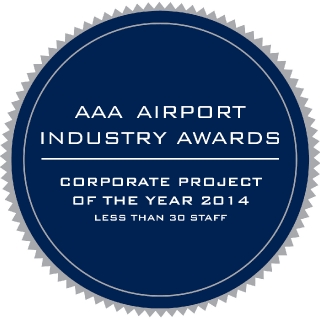
By Daniel Mellish, Specialist Consultant - Property and Finance
Budgeting and Forecasting – words that strike fear into the hearts of most airport managers, owners, operators, and come to think of it, most people…except maybe some Accountants...
But why are these dreaded processes so important to ongoing business success? For years budgeting was viewed as an annual ‘pot of money’, calculated via a long process of submissions, concessions and resubmissions. Throughout the year the pot was studiously used up in case it wasn’t replicated the following year. If replicated, perhaps with an inflationary increase, the cycle repeated itself.
In today’s highly competitive and fast-moving world, the importance of accurate, well-constructed and insightful budgets cannot be underestimated. In capital intensive and highly operational industries such as aviation an incorrect assumption or missing piece of information can result in wide reaching and long-term financial consequences.
Budgets are also one of the most crucial reports provided each year to owners, directors, lenders and other interested parties; and are used as a measuring stick for the rest of the financial year.
In general, budgets are either top down (general targets set based on recent actual results), bottom up (each department building up its cost base or revenue), or a combination of the two. Whatever the approach, the major assumptions and inputs are important. Airports need to identify and understand the underlying drivers of their operational cost base, and not just assume that what has worked in the past can or will be replicated in future. Many drivers are likely to be volume based, however asset and operational specifics also need to be considered; and department and operational managers should be involved or consulted given their expertise.
Airports also provide specific budgetary considerations:
- Capital projects – timing, capital cost including contingencies, associated operating costs
- Passenger assumptions – macro growth (GDP, drivers such as business conditions or local tourism), other airports’ growth, routes (both existing and potential), airline capacity and load factors, and any specifics to the airport (new projects, changes to operations)
- Revenue/price growth assumptions – especially in the current environment where every price increase is met with heated debate with airlines and aircraft operators
- Operational structure can often dictate cost certainty and flexibility – for example outsourcing some contracts and services or identifying fixed versus variable costs
- Interest and depreciation expense, whilst not as glamorous as their cousins higher up the Profit and Loss statement, are significant and need to be budgeted for correctly
Turning briefly to forecasting, this process is often seen as an updated budget, reflecting recent performance re-projected for the rest of the year. In addition to tracking progress to the current year budget, forecasts can help support business decisions, and act as an early goal post for the following year’s budget, especially when done as a ‘current year plus 1 year’ or a rolling 12-month forecast.
Process wise, some organisations conduct multiple budget iterations over a period of 3-4 months, whilst others agree on numbers in a matter of weeks. But overall what is important is transparency of information including targets and any division of costs, accountability and responsibility, and the commitment of the entire organisation to work together to achieve the budgeted targets.
As for systems, many accounting packages have budgeting and forecasting modules, plus other (often web based) tools that sit above the organisation’s general ledger. Many organisations also continue to use excel models, which if correctly built and maintained, can represent powerful budgeting tools, especially for flexing some of the drivers and inputs.
Aviation Projects has extensive budgeting and forecasting experience across a range of Australian airports, as well as other capital-intensive industries. We can assist in reviewing your budgeting and forecasting processes and approach, produce your budgets or related reports and presentations, and provide insights into what others are doing in these areas. If you’d like any further information, please contact Daniel Mellish on (07) 3371 0788.
Tags: Budgeting, Forecasting, Revenue, Costs, Modelling
